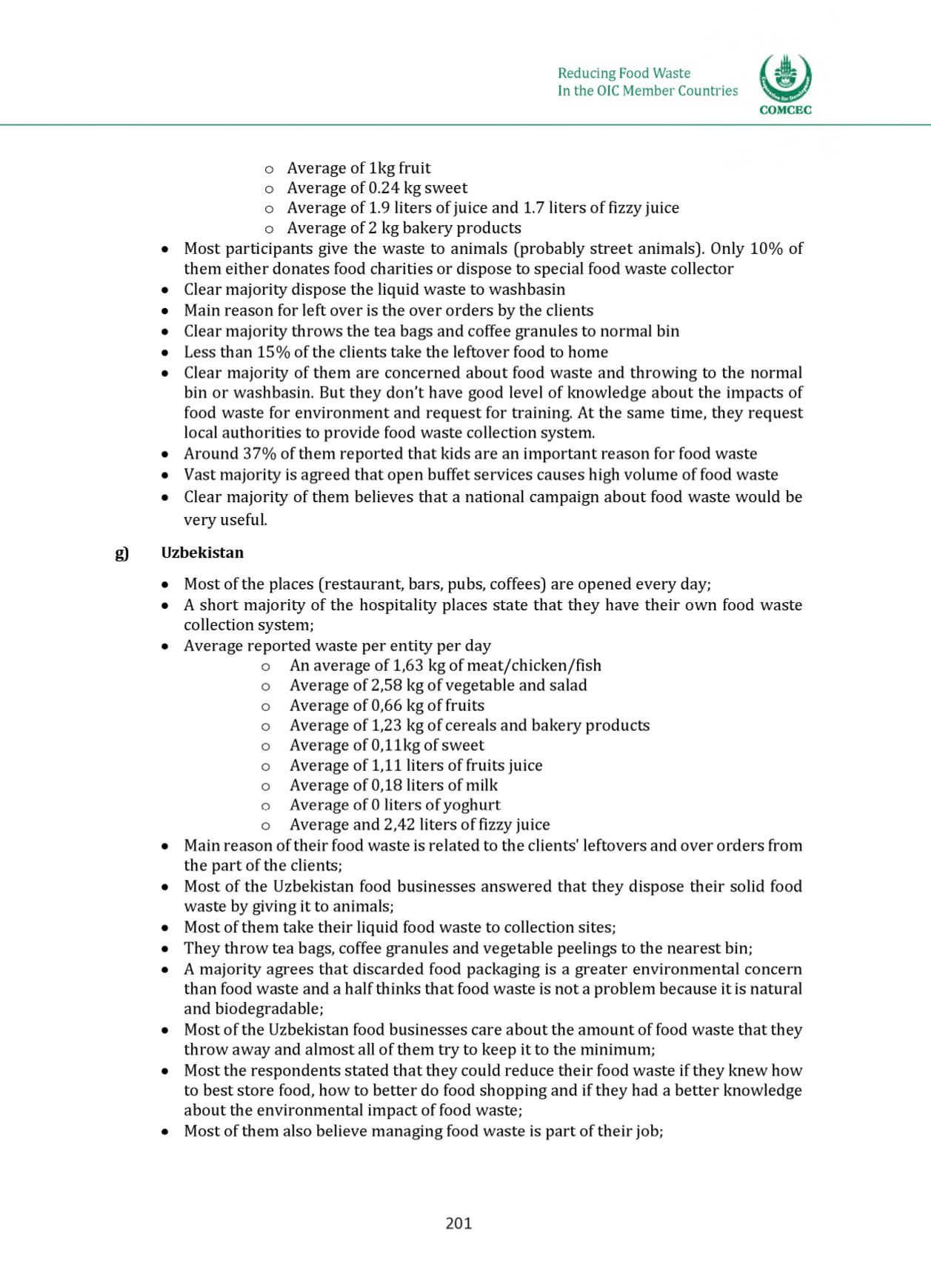

COMCEC
Reducing Food Waste
In the OIC Member Countries
o Average of 1kg fru it
o Average of 0.24 kg sweet
o Average of 1.9 liters of juice and 1.7 liters o f fizzy juice
o Average of 2 kg bakery products
• Most participants give the waste to animals (probably street animals]. Only 10% of
them either donates food charities or dispose to special food waste collector
• Clear m ajority dispose the liqu id waste to washbasin
• Main reason for left over is the over orders by the clients
• Clear m ajority throws the tea bags and coffee granules to no rm al bin
• Less than 15% of the clients take the leftover food to home
• Clear majority of them are concerned abou t food waste and throw ing to the no rmal
b in or washbasin. But they don ’t have good level of know ledge abou t the impacts of
food waste for env ironm ent and request for training. A t the same time, they request
local authorities to provide food waste collection system.
• A round 37% of them reported tha t kids are an im po rtan t reason for food waste
• Vast majority is agreed tha t open buffet services causes high volum e of food waste
• Clear majority of them believes tha t a national campaign abou t food waste w ou ld be
very useful.
g)
Uzbekistan
• Most of the places (restaurant, bars, pubs, coffees] are opened every day;
• A short m ajority of the hospitality places state tha t they have their ow n food waste
collection system;
• Average reported waste per entity per day
o An average of 1,63 kg of m eat/ch icken/fish
o Average of 2,58 kg o f vegetable and salad
o Average
of 0,66 kg o f fruits
o Average of 1,23 kg o f cereals and bakery products
o Average
of 0,11kg of sweet
o Average
of 1,11 liters of fruits juice
o Average
of 0,18 liters of m ilk
o Average
of 0 liters o f yoghurt
o Average and 2,42 liters o f fizzy juice
• M ain reason of their food waste is related to the clients' leftovers and over orders from
the pa rt of the clients;
• Most of the Uzbekistan food businesses answered tha t they dispose their solid food
waste by giving it to animals;
• Most of them take their liqu id food waste to collection sites;
• They th row tea bags, coffee granules and vegetable peelings to the nearest bin;
• A m ajority agrees tha t discarded food packaging is a greater environmental concern
than food waste and a h a lf thinks tha t food waste is no t a p rob lem because it is natural
and biodegradable;
• Most o f the Uzbekistan food businesses care abou t the am o u n t of food waste tha t they
th row away and alm ost all o f them try to keep it to the m in im um ;
• Most the respondents stated tha t they could reduce their food waste if they knew how
to best store food, how to better do food shopping and if they had a better knowledge
abou t the environmental im pac t of food waste;
• Most of them also believe m anaging food waste is pa rt of their job;
201
















